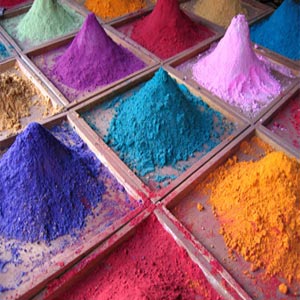
The dyes and pigments segment has a great potential to evolve in India, end uses of Pigments is in Paints & Coatings, Printing Inks, Plastics & Masterbatch, Rubber, Textile, Cosmetics, Paper Etc markets.
With India’s 1.38 billion population, substantial disposable incomes and a large consumer base, all these segments are expected to grow in double digit CAGR over the next few years. With growth in these segments the Pigment industry is bound to grow in the future.
However the dyes and pigments segment comes with its own unique set of challenges such as the pollution, supply chain dependability, permission to expand the production and volume of the products manufactures.
Dyes & Pigments require large amounts of water and treatment of waste water is very critical and important in order to remain sustainable going forward in this segment. On the other side it is important that post COVID 19 the government encourages and supports the segment by fast approvals and grants addition permission required by the manufacturers to increase their capacities.
Thus, Micas Organics Limited over the years has invested and understood the needs to protect the environment and we are building additional capacities with adoption of modern technologies
to reduce, reuse, and recycle generated waste water towards a more sustainable organization.
The focus is also on quality of pigments as the most essential factor, with cost competitiveness. The company is extremely well positioned in this segment and it is one of the only Indian Pigment manufacturers to be back ward integrated with its own Pigment Intermediates (raw materials).
The dependency on suppliers and imports (especially China) is minimal compared to its peers in this segment. Over the last 2 years the competition has observed disrupted supplies and large price fluctuations in the Pigment raw materials market, the backward integration into its own raw material has helped to protect MICAS from this disruption. “With our own raw material we have been able to demonstrate our sustainability in supply chain and pricing commitments to our customers” Pranav Shah - Director at Micas Organics Limited.
Wide Range of Product Basket Catering to many Divisions
MICAS within the Pigment segment offers Organic, Phthalocyanine, Basic Dyes, Inorganic, Anti Corrosive, Lead Free and High Performance Pigments. The company has more than 150 products in its product basket with certain products designed specifically based on customer application requirements.
MICAS is one of the few companies in India who has such a wide product basket and caters to many final application categories. The strength has always been the capability of quality control and supply of products with consistent quality. Since the company manufacture its own pigment raw materials which ensure end to end product traceability in case of any quality issue if it may arise.
The company was established in 1988 with manufacturing only one category of pigments. With time the company kept acquiring additional facilities for expansion and diversified into the other Pigments Intermediates categories which it currently manufactures. The company has the distributor presence across South Asia and the Middle East but it is looking forward to expand into Europe and America for which the company has already laid out its strategies. Entry barriers in these markets are high product quality, supply chain sustainability and product regulatory compliance to ensure success.
Consequently, plan for the future at MICAS is well defined and is aiming to become India’s second largest pigment producer with further investments into pigment intermediates thereby becoming a sustainable and cost competitive supplier for its customers. Investments into capacities is an ongoing process, the company is working on increasing the efficiencies by adopting latest technologies, process automation &improving standards of the effluent treatments plants. “In the last couple of years we have invested into Solar Plants & Rain Water Harvesting Systems across sites which make us more environmentally accountable and their by ensuring long term organization sustainability,” concludes Pranav Shah.
We use cookies to ensure you get the best experience on our website. Read more...